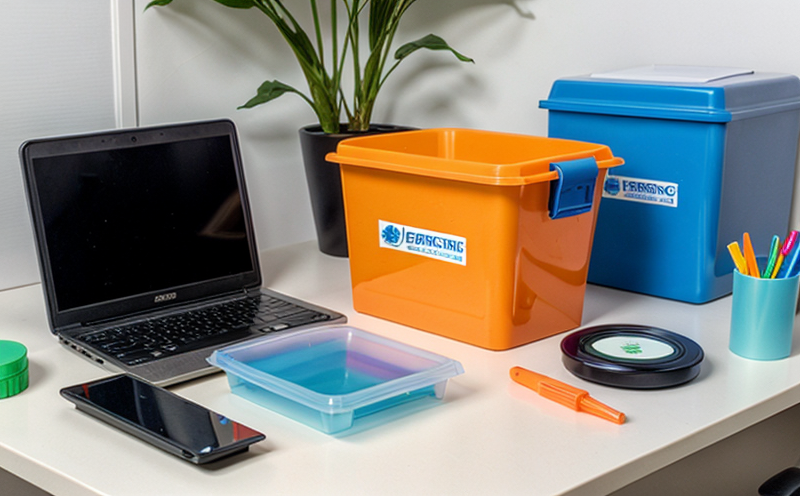NF EN 14563 Virucidal Testing of Plastic Office Surfaces
The NF EN 14563 standard provides a framework for testing the virucidal efficacy of plastic surfaces intended for use in office environments. This test is crucial as it ensures that materials used in offices are capable of effectively reducing or eliminating harmful viruses, particularly those associated with high-touch areas like desks, chairs, and handrails. The protocol specifically targets plastic surfaces commonly found in commercial settings where hygiene standards must be maintained to protect employees and visitors from infectious diseases.
The test involves exposing the surface material to a standardized viral inoculum under controlled conditions. The specimen is then incubated for an appropriate period, during which time any residual viruses are expected to be neutralized by the virucidal properties of the plastic. After this incubation phase, further testing may include attempts to recover viable virus from the treated surface using various methods such as swabbing or aerosolization. Acceptance criteria typically specify that no detectable viral particles should remain on the surface after treatment.
Compliance with NF EN 14563 is particularly important for manufacturers and suppliers of office furniture, stationery products, and other items that come into contact with users' hands or surfaces regularly. By ensuring compliance through rigorous testing, companies can enhance their product offerings by demonstrating a commitment to public health and safety.
The process begins with selecting suitable test specimens representative of the intended use. These could range from desk lids made from polypropylene to folders fabricated from polystyrene. Specimens are prepared according to the specifications outlined in NF EN 14563, ensuring consistency across tests conducted by different laboratories.
Once prepared, the samples undergo exposure to a known quantity of virus suspension. This step is critical as it simulates real-world conditions where viruses might be transmitted from one surface to another through contact or aerosolization. The duration and temperature during this phase are carefully controlled to mimic typical office environment parameters.
After incubation, the treated surfaces are evaluated for residual viral presence via swabbing or other appropriate sampling techniques. Laboratories use sensitive detection methods such as qPCR (quantitative polymerase chain reaction) or ELISA (enzyme-linked immunosorbent assay) to quantify any remaining virus on the surface.
The results of these tests provide valuable insights into the virucidal performance of plastic office surfaces. They help manufacturers refine their formulations and production processes, leading to improved product quality and enhanced consumer confidence in hygiene standards.
In summary, NF EN 14563 provides a robust methodology for assessing the virucidal properties of plastic materials used in offices. It plays a vital role in maintaining public health by ensuring that commonly touched surfaces are effectively disinfected against potentially harmful viruses.
Why It Matters
The importance of NF EN 14563 testing cannot be overstated, especially given the ongoing challenges posed by infectious diseases like COVID-19. In environments such as offices where multiple individuals share common spaces and surfaces, the risk of viral transmission is significantly higher. By adhering to this standard, manufacturers can produce products that contribute positively to workplace hygiene.
For quality managers responsible for ensuring product compliance, NF EN 14563 offers a clear guideline on how to evaluate virucidal efficacy. This information helps them make informed decisions regarding material selection and process optimization. Compliance officers also benefit from having standardized criteria against which they can assess suppliers and products.
R&D engineers involved in developing new materials or improving existing ones find NF EN 14563 particularly useful. It provides a benchmark for innovation, encouraging the creation of more effective virucidal agents without compromising other desirable properties like durability or aesthetic appeal.
From a procurement perspective, compliance with this standard ensures that purchased items meet necessary hygiene standards. This reduces potential risks associated with substandard products and enhances overall supply chain reliability.
Benefits
Adhering to NF EN 14563 brings numerous benefits to both businesses and consumers alike:
- Enhanced Hygiene Standards: Products that pass this test contribute significantly to maintaining cleaner offices, thereby reducing the spread of infectious diseases.
- Increased Consumer Confidence: Labels indicating compliance with NF EN 14563 can reassure customers about the safety and effectiveness of purchased products.
- Competitive Advantage: Offering virucidal-tested products positions a company ahead of competitors, making it easier to attract health-conscious clients.
- Legal Compliance: Meeting regulatory requirements helps avoid legal issues related to product safety or efficacy claims.
- Improved Brand Reputation: A reputation for producing hygienic office supplies enhances brand image and fosters customer loyalty.
- Faster Market Entry: Pre-testing materials against NF EN 14563 allows companies to expedite the development process, bringing products to market sooner.
In addition to these direct benefits, compliance also supports broader public health initiatives aimed at reducing infection rates in indoor environments. This aligns with global efforts towards improving workplace safety and overall well-being.
Why Choose This Test
Selecting NF EN 14563 for virucidal testing offers several advantages over alternative approaches:
- Standardized Methodology: Using a widely accepted standard ensures consistent results across different laboratories, enhancing credibility and reliability.
- Regulatory Recognition: Compliance with NF EN 14563 is often required by regulatory bodies, making it easier to meet certification requirements.
- Comprehensive Evaluation: The test evaluates multiple factors affecting virucidal performance, providing a holistic view of the material's effectiveness.
- Precision and Accuracy: Advanced detection techniques used in NF EN 14563 ensure precise measurements, leading to more accurate conclusions about virucidal efficacy.
- Industry Best Practice: Adopting this standard aligns a company with industry leaders, fostering innovation and continuous improvement.
- Economic Efficiency: Early identification of potential issues through testing reduces costly rework or redesign later in the development cycle.
By choosing NF EN 14563 virucidal testing, businesses demonstrate a commitment to excellence in product quality and safety. This approach not only meets current regulatory demands but also positions them favorably for future challenges related to public health.





